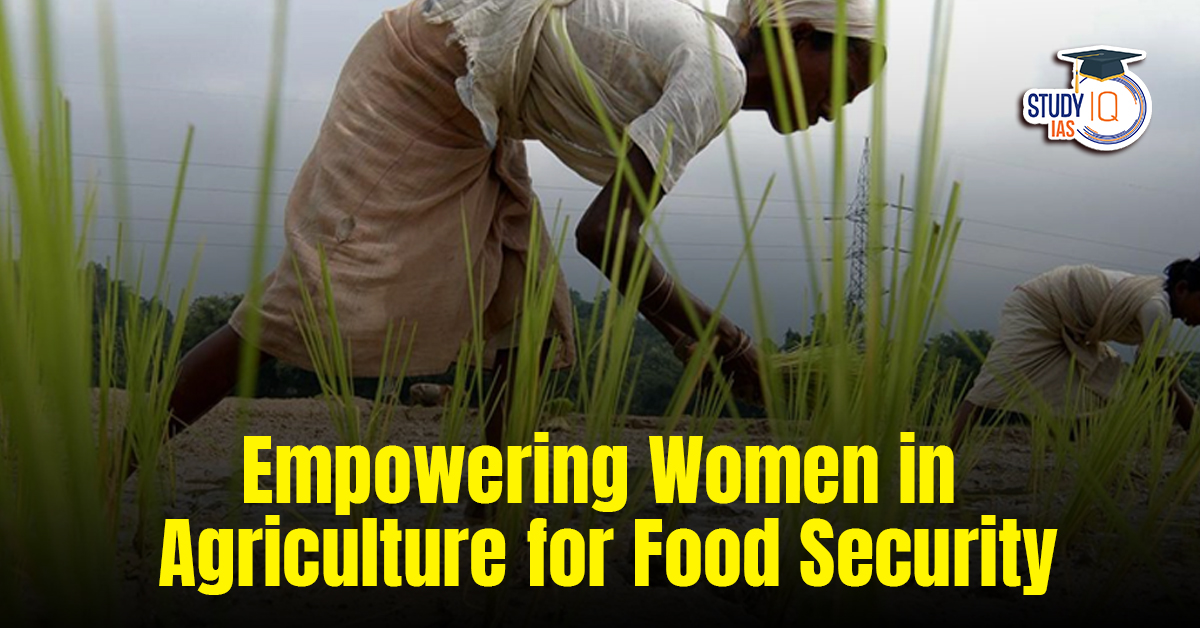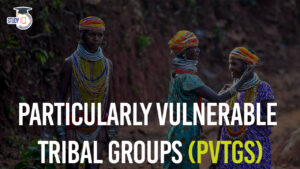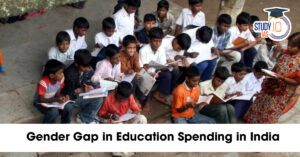Table of Contents
Context
- The United Nations General Assembly has declared 2026 as the International Year of the Woman Farmer.
- The resolution celebrates the essential role of women in global agriculture while raising awareness of their challenges, which include property rights and market access.
Significance of Women in Agriculture
- Substantial Contribution to Food Production: Women account for 60% to 80% of food production in developing countries and nearly 39% of agricultural labour in South Asia.
- Vital Role in Household Food Security: Women farmers directly contribute to family nutrition, food availability, and community food security through local and subsistence agriculture.
- Contribution to Rural Economy: Women’s involvement boosts local economies by ensuring steady agricultural production, contributing significantly to rural economic resilience.
- Custodians of Biodiversity and Traditional Knowledge: Often maintain traditional agricultural practices, preserving indigenous seeds, biodiversity, and promoting climate-resilient farming techniques.
- Critical Role in Climate Adaptation: Women actively adapt farming practices to environmental changes, significantly contributing to resilience at community levels.
Challenges Faced by Women Farmers
- Land Ownership and Property Rights: Women in India represent only about 3% of landowners, significantly limiting their control over resources and their ability to secure credit and institutional support.
- Limited Access to Finance: Due to a lack of property collateral, women farmers struggle to obtain substantial loans, constraining their ability to invest in farming technology and infrastructure.
- Restricted Access to Technology and Information: Lower access to mobile phones, internet, and agricultural advisories hampers women’s capability to adopt advanced farming practices and climate-adaptive techniques.
- Increased Vulnerability to Climate Change: Climate change disproportionately affects women farmers, escalating their household and agricultural responsibilities, and intensifying their exposure to agricultural and livelihood risks.
- Inadequate Representation and Participation: Limited decision-making power and inadequate representation in agricultural policy formation impede their ability to advocate effectively for their needs.
Way Forward
- Ensuring Gender-Equitable Land Rights: Policies must actively promote property ownership among women, facilitating land registration and inheritance rights to empower their economic position.
- Enhancing Financial Access and Inclusion: Expand access to credit and financial services tailored specifically for women, leveraging self-help groups, cooperatives, and microfinance models.
- Scaling Up Access to Agricultural Technology: Enhance digital literacy and technology access through targeted interventions, like Climate Adaptation Information Centres and mobile advisories, to enable women farmers to make informed decisions.
- Strengthening Agricultural Value Chains: Support women-led agricultural cooperatives, value chains, and enterprises, ensuring market linkages, fair prices, and sustainable agricultural practices.
- Inclusive Policy Design and Implementation: Implement gender-sensitive agricultural policies based on granular, gender-disaggregated data, ensuring the unique needs of women farmers are recognised and addressed effectively.
- Capacity Building and Empowerment Initiatives: Continuously enhance skills and knowledge of women farmers through government schemes like Mahila Kisan Sashaktikaran Pariyojana, promoting skill upgrades and sustainable farming practices.
- Encourage Community-Based Climate Adaptation: Expand successful models like ENACT (Enhancing Climate Adaptation of Vulnerable Communities), which leverage women’s active participation in adopting climate-resilient practices, diversification, and community seed production.


 Particularly Vulnerable Tribal Groups (P...
Particularly Vulnerable Tribal Groups (P...
 Geo-tagging of Buildings During Upcoming...
Geo-tagging of Buildings During Upcoming...
 Gender Gap in Educational Expenditure in...
Gender Gap in Educational Expenditure in...




















